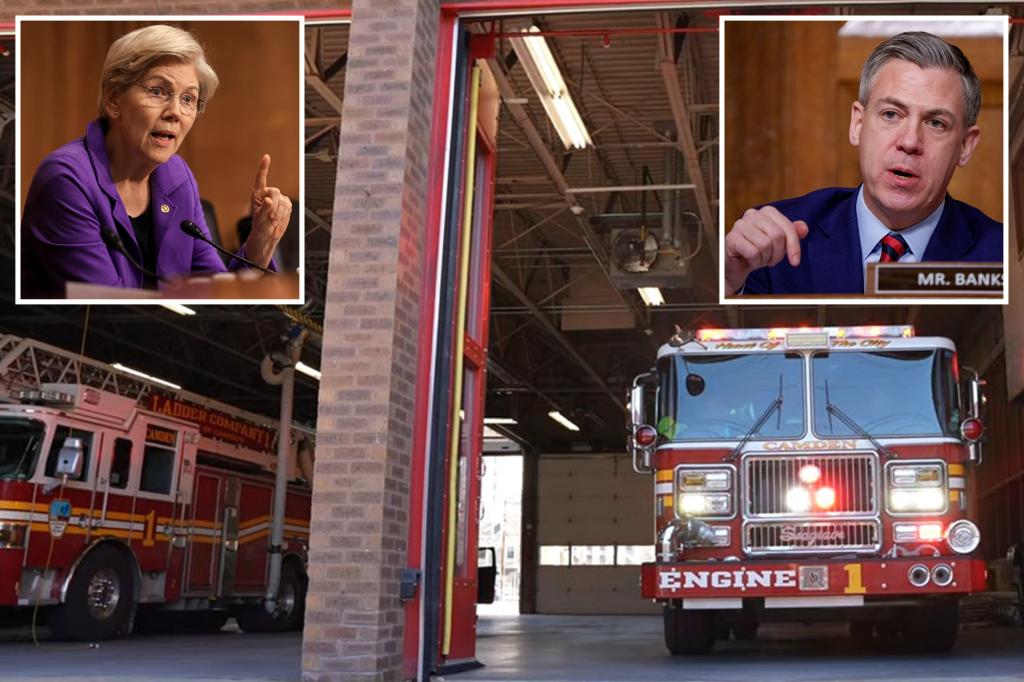Investigation into Rising Fire Engine Costs by US Lawmakers
U.S. lawmakers are investigating the skyrocketing prices and extended wait times for fire engines affecting fire departments nationwide, with a particular focus on the potential role of private equity firms in the situation.
This bipartisan probe led by Senators Elizabeth Warren (D-Mass.) and Jim Banks (R-Ind.) was instigated by numerous fire departments reporting significant delays in delivery, defective parts, and rising costs.
The cost of ladder trucks has surged from $750,000–$900,000 in the mid-2010s to around $2 million today, while pumper trucks often exceed $1 million.
Consequences of Delays and Increased Costs
Delivery times have significantly increased as well, soaring from under a year before the pandemic to as much as four-and-a-half years in some locales. This crisis has left many fire departments, such as those in Los Angeles, critically under-equipped for emergencies.
During the recent Palisades wildfires, a staggering over 100 of the Los Angeles Fire Department’s 183 trucks were unavailable, a situation made worse by aging vehicles and skyrocketing costs.
Concerns Over Private Equity’s Influence
The senators emphasized in their letter to the International Association of Fire Fighters (IAFF) that “private equity is padding shareholders’ wallets at the expense of public safety,” indicating a pressing need to examine the financial investors’ impact on this vital public safety sector.
Focus on American Industrial Partners
The investigation is particularly directed at American Industrial Partners (AIP), a private equity firm that acquired several specialty vehicle manufacturers, including fire truck manufacturers, over the past two decades.
According to reports, these firms were merged into Rev Group, which was subsequently taken public but remained under AIP’s operational control. However, a spokesperson for Rev Group argued that claims suggesting industry-wide price hikes and production delays stem from market consolidation do not fully consider the challenges faced by the company and the industry.
Market Consolidation and Its Effects
The consolidation of the fire truck manufacturing market, which once included many small, local businesses, has risen, with Wall Street recognizing the potential in struggling manufacturers. Rev Group alone now holds up to 30% of the market, while major players collectively control about 70 to 80 percent.
Timothy Sullivan, the former CEO of Rev Group, previously indicated to analysts a desire to increase profit margins. However, this aggressive strategy has coincided with growing backlogs, as Rev Group’s outstanding orders skyrocketed from roughly $1 billion pre-pandemic to around $4 billion now, with delivery times extending up to three years.
Impacts on Smaller Cities and Outdated Fleets
Fire departments in cities like Watertown, NY, and Camden, NJ, are experiencing delays of several years for new vehicles, forcing them to look for used equipment. Meanwhile, cities including Seattle, Atlanta, and Houston are dealing with outdated fleets that significantly increase maintenance costs and reduce their operational readiness.
Even when funds are available, delivery bottlenecks can result in waiting years for new trucks. A spokesperson for Rev Group noted that in the past five years, particularly during the pandemic, prices and delivery times have risen due to inflation, supply chain issues, and labor limitations.
Efforts to Address Supply Chain Issues
Rev Group has stated that they have increased production of fire and emergency vehicles by nearly 30% over the last two years to expedite truck delivery for fire departments. The company acknowledged that the demand has significantly increased post-pandemic, creating further supply constraints.


